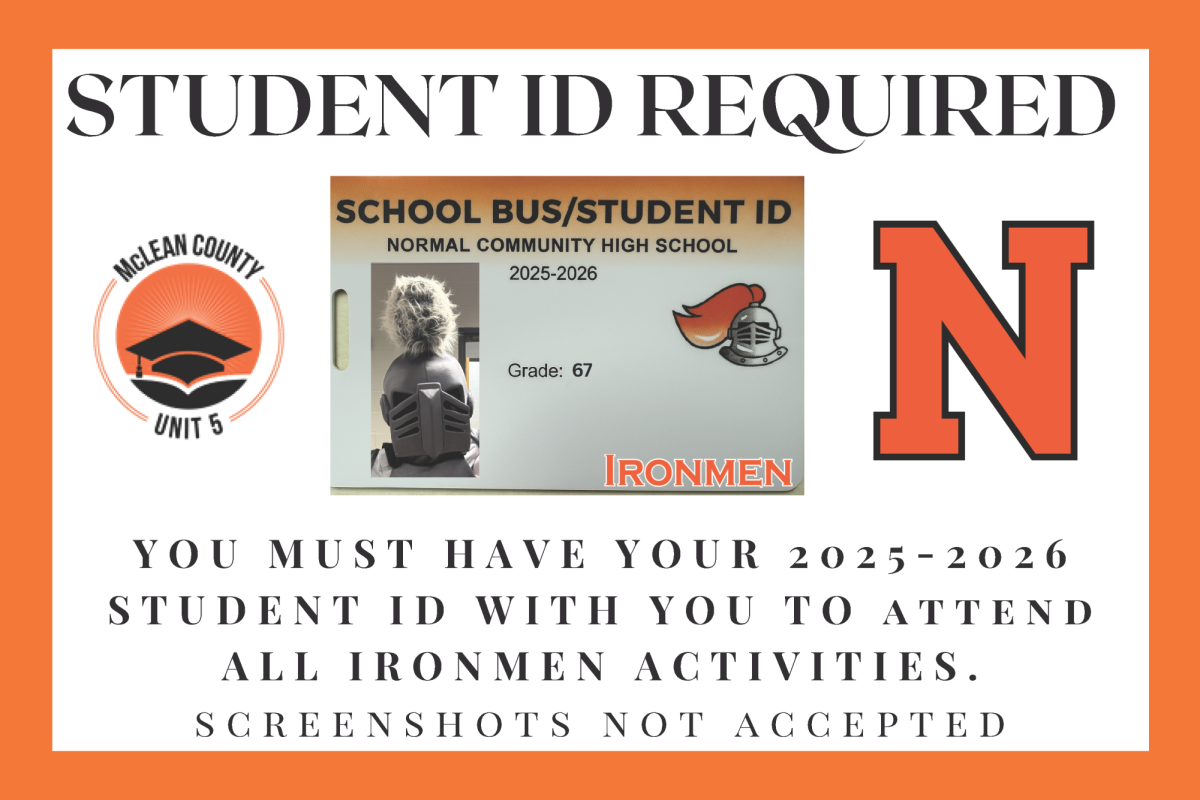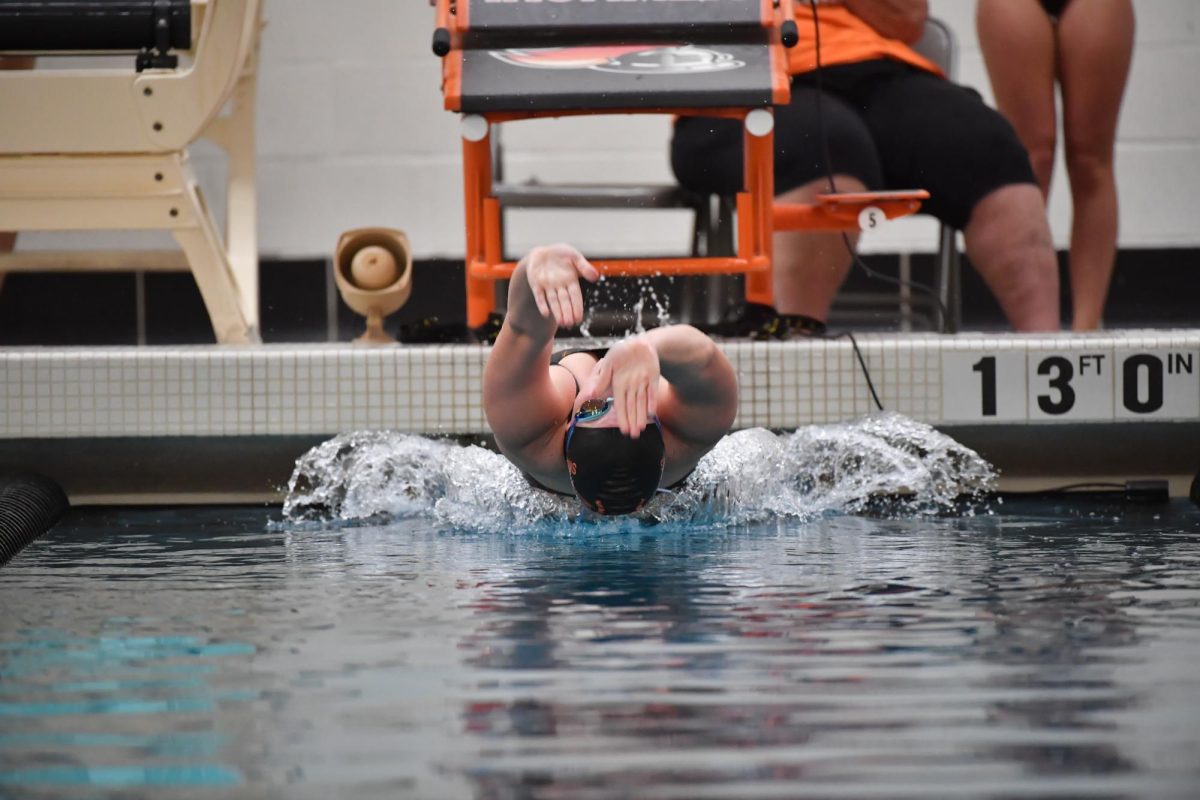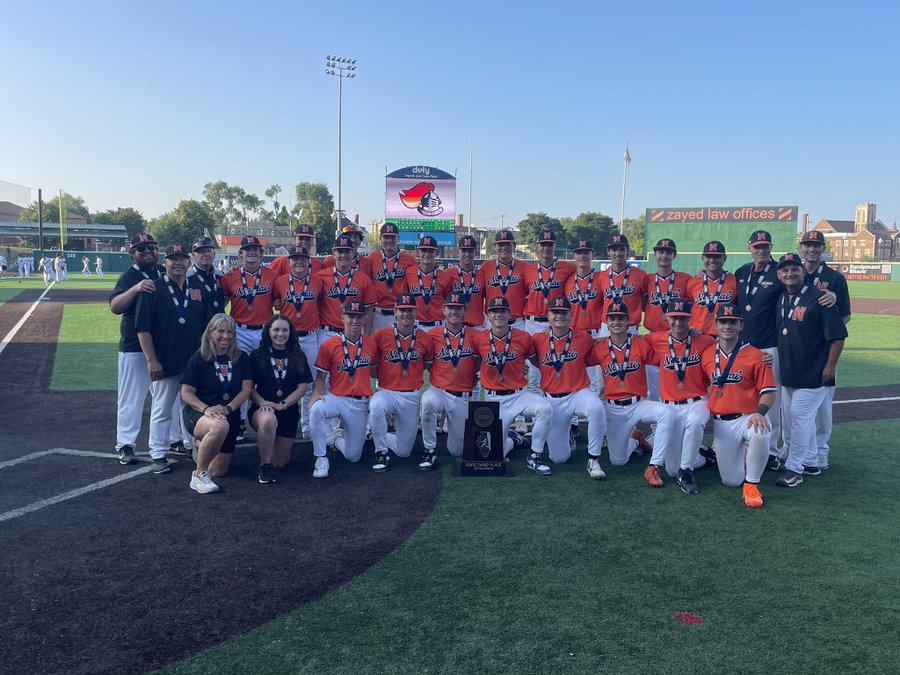The following is a transcript of recorded statements at the Unit 5 Board of Education Regular Meeting on Wednesday, March 11 at Kingsley Junior High, where Dr. Mark Daniel, Superintendent; Dayna Brown, Director of Communications and Community Relations; and Michelle Lamboley, Executive Director of Special Services, addressed Unit 5’s efforts in addressing and preventing the spread of the Coronavirus.
The transcript has been minimally edited to enhance clarity.
Dr. Daniel: This is rather lengthy, but I think we need to state and update some facts that are happening around coronavirus, so please bear with me. And as you know, things are changing as we speak, so we are trying to stay very much current. We are tapping into the CDC, we’re tapping into ISBE in regards to the state guidelines, and if you haven’t heard, ISU has now extended their spring break, and they’ll have online learning. But that’s happening and it’s going to continue to happen probably throughout our state. Again, we’re monitoring this, Dayna Brown, in particular, is on this, it seems like she’s on it every hour, and there are continuously updates but as you know there are no cases yet in McLean County, thank goodness. But because of this constantly changing, we have to continuously upgrade what we’re doing. So, I do want to tell you some of the things we’re trying to do.
First of all, prevent the spread of germs. And second of all, what does it mean in future planning? There are things that I cannot say just yet, because Dayna will not let me say them. But of course, if we hear districts are extending their periods of spring breaks, then the question is why. And we’ll now, Unt 5, do something very similar. We are going to ramp up the process of e-learning, it may happen by the time it’s needed if it’s needed, or it may not. So there are alternatives for us though. They’re called emergency days, they’re built into our calendar, and Dayna’s going “he’s winging this,” anyways, but they’re built into our calendar but what that means is when we close schools, we will make up that time at the end of the calendar and at the end of the year. So that will continue into late May and probably early June. Now, I’m not saying that’s happening, I’m just saying that we are considering all these pieces, and what it would mean to the continuation of our school day, our school year, and then, of course, ultimately though, it’s always about the safety of our students and our staff.
So, we have provided frequent communication, and we’re again assessing that or gathering that communication from the McLean County Health Department. We’re also monitoring daily absences in each of our 24 schools to see what trends there are. We’re also giving handwashing education, you never thought you’d have to do that right, but we’re actually going through, how do you wash hands. And there’s been a video or tips, and go to our website, by the way, you’ll see this as well.
But also, we want to remind people that when students are ill, and they’re still in our building, we are then removing them to the nurse’s station, and at that time, masks are provided, and those masks are provided for the ill students so they do not spread the germs. So, and as you know, if you’ve been in any kind of supermarket or grocery store right now, you know there’s a run on masks, and you can’t find them. In regards to disinfectant, you can’t find it, and we have ordered gallons, probably over 100 gallons of disinfectant. But again, because this is a nationwide issue, we are on backorders. So, what do we rely on? Handwashing. That is the most effective. As a side note, when I was a principal, we had an advanced bio class that did a study on handwashing versus disinfectant, and what was the best? Handwashing, by far. As a matter of fact, we even tried it without soap, but it was still the best.
But anyway, we’re also taking measures in regards to deep cleaning, we are focused on our larger areas, in other words “larger” meaning where large populations gather, but we’re also looking at doors and restrooms and any place that we find that, and certainly during our spring break, our custodial staff, bless their hearts, they’re going to work very, very hard to do deep cleaning in each one of our buildings. So, we’re also exploring the e-options as I mentioned, and that will be a high priority for the rest of this week and leading into next week.
And we understand Spring Break, since it is right around the corner, we’re going to have families spreading out across the country. So, what do you do about that phenomenon? I mean I’ve been, you know, we’ve been talking with ISU and we’ve talked with Heartland Community College, and of course lab schools involved with ISU, and you’re seeing things now that we’ve never experienced before. So we’ll cross those bridges, we will use our best information that we can find from authorities, and our primary contact is the CDC.
So, with that said, when do you as a parent keep your child home if they have a fever? They need to stay home if they have a fever, and if it’s related to, well actually right now, we are saying, in regards to the virus, those are excused absences. You will not be counted truant or anything of that nature and you as a parent still have that option to keep your child home, and we will treat that as an excused absence because of the virus, but again, we will always say it is your choice as a parent, and we will not have the student be penalized because of a health issue.
Okay, so I wanted to make sure that was clear. Also, keep your child home for 24 hours after the fever has broken, and hopefully, that’s even after they’ve had medication to reduce it. Avoid touching your eyes, nose and mouth, and if you’ve seen any of the videos out there, I say that as I want to touch my nose and mouth, it’s a very hard thing to do, but again we’re trying to instill that and again, sneeze in arms and so on and so forth, you’ll even see us doing the “elbow bump” and that sort of thing.
So again, clean and disinfect frequently touch objects and surfaces, call your doctor for advice if your child has symptoms, and especially if your child has a chronic illness. And again, this is something we’re taking very very seriously. And we’re, thank goodness we have people like Dayna Brown. Also, Michelle Lamboley has been on this as well, Mrs. Markham, our nurse, they have spent hours on this and trying to keep us in the very forefront of what’s happening. So again, best wishes, we won’t see you until after spring break, and maybe beyond. So thank you. Dayna, would you like to add something?
Dayna Brown: I think, as Dr. Daniel shouts out to us, I think it’s really important to stress that we’re not health officials, so really what Michelle and I are doing is gathering information and working with local and state health organizations to make those determinations. This is bigger than Unit 5, so we have been following the CDC guidelines, and we have been working with our local health department, our Regional Office of Education and our state health department as well as the Illinois State Board of Education. It’s changing very fast, and every time we open our email, something different is popping up. We’re getting hundreds of emails a day regarding direction on this. One thing that’s important to point out is at this point, the ISBE has made no recommendation that we close. I think that’s important.
Could that change? Anything could change, and we’re seeing that happen. We understand there’s a lot of concern, especially with the decision ISU made today, and we’re watching that very closely. There’s also been a lot of questions about Spring Break trips and events and gatherings, and we continue to look at that and talk with our health officials and literally take the recommendation of the health department because they are the experts in this. I don’t want to put her on the spot, but I’m going to kind of throw it to Michelle because she is the administrator that works with our nurses. We have an amazing group of nurses in our schools who follow this so closely and take this very seriously.
Michelle Lamboley: I guess I would just add to some of what Dr. Daniel said that the nurses obviously are going to monitor students. They’re going to suggest a mask for students, and, I mean, the precautions that we take normally with students not coming to school, they have to be fever-free for 24 hours, all of those things are standard protocols. So I think the disinfecting and things we’re doing are just another layer, and I think the nurses are also monitoring the information that we’re getting from the McLean County Health Department and the Illinois Department of Public Health, the CDC, and everything that we’re getting they’re also getting. They are more of experts than the two of us, so, I’m just going to be honest, they’re medically trained, we are not. I just oversee the nurses from this kind of a level and I have no, you know, expertise, but they help me understand what we need to know and we work closely with those other agencies, so, we’ll keep monitoring and making our decisions with the expertise of those individuals.
Dayna Brown: You know, the only other thing we would add is as they talk with parents, we’re saying that these things are as of today because we don’t want to make promises we can’t keep, we don’t want to say things. I’ve never seen any situation, health or otherwise change as rapidly as this has not just in our community, in our state, in the nation, and in the world. So really, we’re information gatherers, and we are working directly with health officials to make those important determinations.


![Community honors longtime coach Mr. Bryan Thomas before Oct. 3 game [photo gallery]](https://nchsinkspot.com/wp-content/uploads/2025/10/Thomas-6-1200x1200.jpg)



























![Week 7: Coach Drengwitz recaps the Ironmen’s win over Bloomington, talks Danville [video]](https://nchsinkspot.com/wp-content/uploads/2025/10/Vikings-feature-Image-1200x675.png)
















![Halloween candy cross section quiz [quiz]](https://nchsinkspot.com/wp-content/uploads/2022/10/Candy-cover-big-900x675.png)
![Average Jonah? [quiz]](https://nchsinkspot.com/wp-content/uploads/2022/05/average-jonah-900x600.png)







![[Photo Illustration]](https://nchsinkspot.com/wp-content/uploads/2025/09/trigger-words.png)















![Week 5: Coach Drengwitz previews the Ironmen’s matchup vs. Peoria Manual, recaps Week 4 [video]](https://nchsinkspot.com/wp-content/uploads/2025/09/Week-5-v-Rams-1200x675.png)
![Postgame reaction: Coach Drengwitz on Community’s 28-17 Loss to Kankakee [video]](https://nchsinkspot.com/wp-content/uploads/2025/09/Week-4-postgame--1200x675.png)
![On the Spot: This or That – Halloween [video]](https://nchsinkspot.com/wp-content/uploads/2024/10/tot-Halloween-YT-1200x675.png)
![On the Spot: This or That – Fall favorites [video]](https://nchsinkspot.com/wp-content/uploads/2024/10/ots-fall-web-1200x800.png)
![On the Spot – Teachers tested on 2023’s hottest words [video]](https://nchsinkspot.com/wp-content/uploads/2024/01/On-the-Spot-Teachers-tested-1200x675.png)








